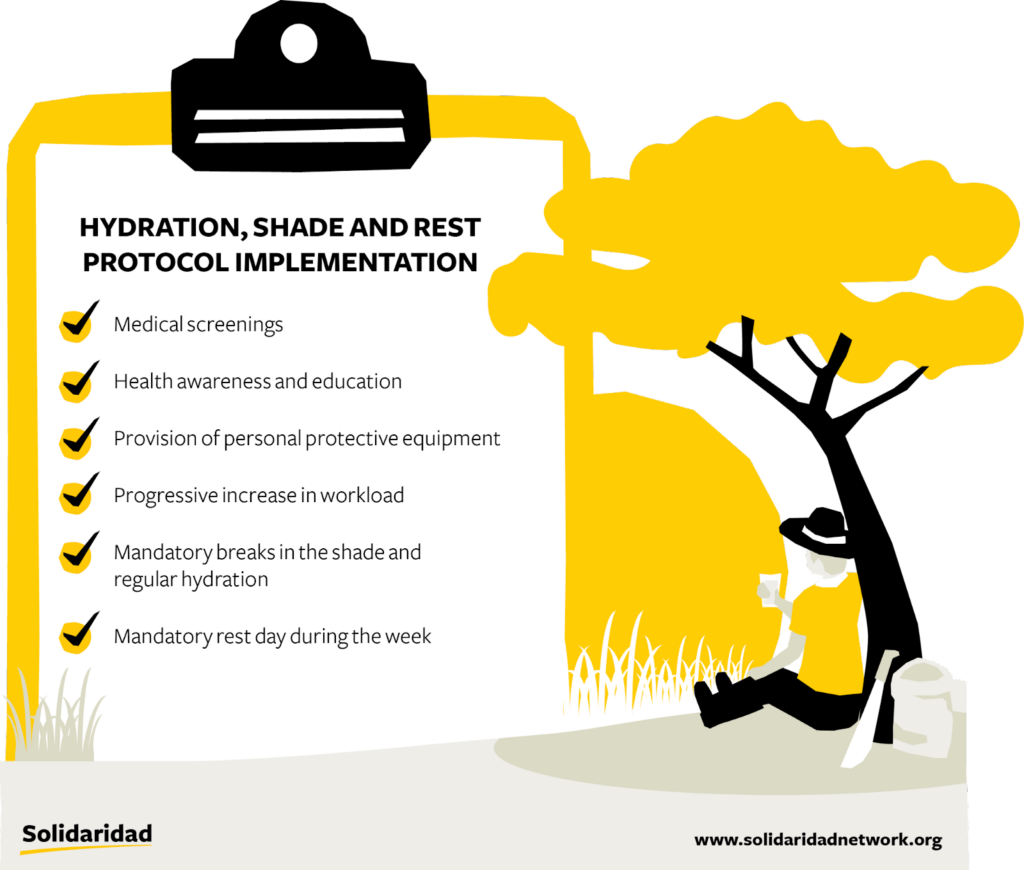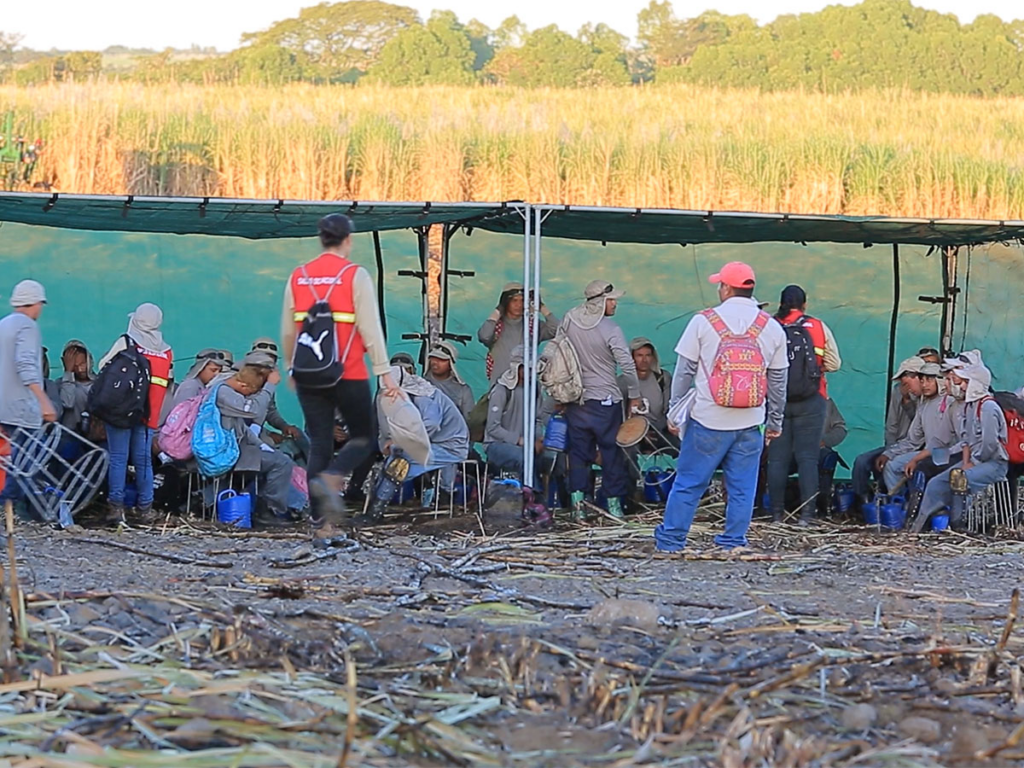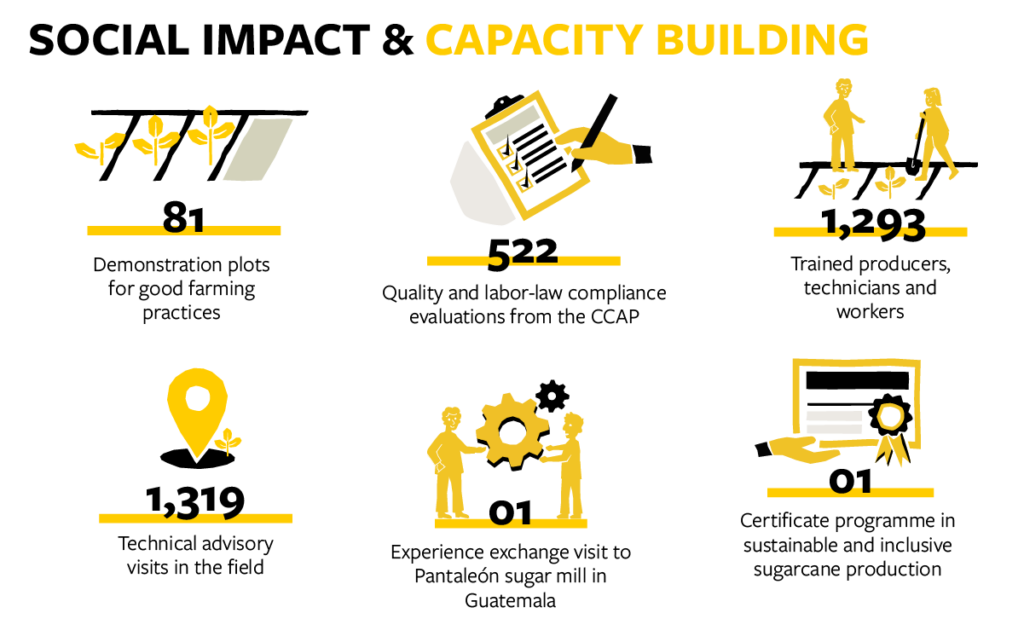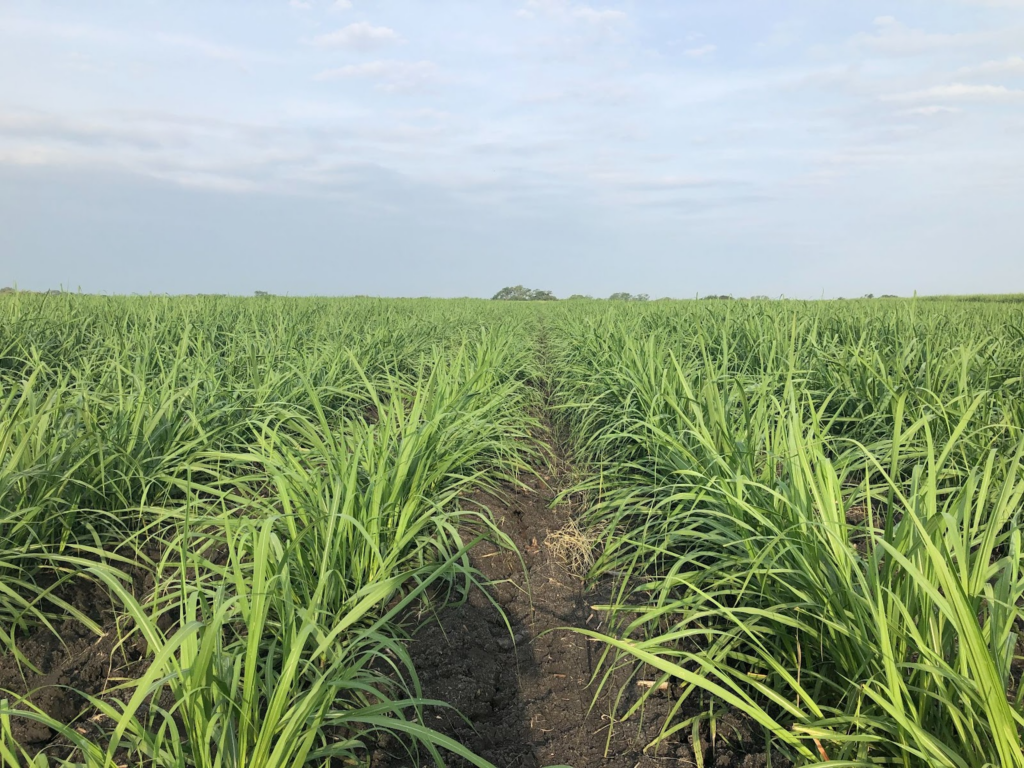“We’ve applied everything we’ve learned to our crops and we can already see the benefits”, says Norberto Pérez, a sugarcane smallholder.
At Solidaridad, a critical contributor to sustainable success is the way that we center smallholders in our initiatives. We unite our partners and smallholders to implement good practices and sustainably increase productivity. The PanameriCaña initiative was part of the Practice for Change programme financed by the Ministry of Foreign Affairs of the Netherlands from 2016 to 2022. Learn about the initiative’s positive regional impact below.
Better working conditions in field and factory
High temperatures are a health and safety risk for smallholders and workers in the sugarcane sector. To improve working conditions in the field, we worked with multiple stakeholders implementing better practices across various mills in the region.
The Hydration, Shade and Rest programme promoted the permanent adoption of these simple, but effective practices that assure good working conditions. It also supported the mills’ ability to safeguard the health and safety of workers and guarantee fair labor practices, including gender inclusion and the eradication of child labor.
We have had great results with the protocol. Sugarcane workers take 20 minutes to rest, drink water, and sharpen their tools under the shade. We have seen this protocol work for three harvests and have seen an increase in workers returning season after season.
Jaime Delgado, PIASA Group, Mexico

Building strategic alliances with partners who fight for sustainable practices was a critical component of the PanameriCaña programme. Solidaridad coordinated with Grupo SER San Antonio in Nicaragua, hosting conferences and building demonstration plots. Training plans were adapted during the COVID-19 crisis when we shifted to virtual presentations for smallholders that focused on occupational health challenges caused by climate change, sharing recommendations to safeguard health and safety.

Thanks to these initiatives, nearly 40,000 workers now have better working conditions, including safer conditions, better work environments, access to personal protective equipment, gender inclusion strategies and other benefits.
Improving productivity together with strategic partners
One of the objectives of PanameriCaña is to improve the sustainability, resilience, and productivity of sugarcane smallholders through good practices, disseminated through training, technical assistance, demonstration plots, knowledge exchanges, and diploma courses.
Achievements over the last seven years included:
- 2,877 smallholders improving their productivity
- 285,284 hectares under good management practices
- 15,795 smallholders implementing good practices

As part of the initiative, the MAS-CAÑA I programme is one of our most important partnerships, with Bayer and the Plan de San Luis Sugar Mill of the PIASA Group. Over 1,000 smallholders and workers benefited from capacity building, achieving an average increase of 20% in productivity.
In addition, good practices were adopted by 1,275 smallholders and workers, more than 5,000 hectares incorporated better agricultural practices, and 522 assessments of Agricultural Quality and Conformity for Producers (CCAP) were carried out. With MAS-CAÑA II, in partnership with Bayer and Ingenio Panuco from Grupo Pantaleon, the objective is to reach 3,672 smallholders. The programme achievements are reflected in its results. In 2022 MAS-CAÑA was a finalist for the Bonsucro Inspire Awards, under the category “Best Initiative in the Value Chain.”

“The responsible vision of the Pantaleon Group and Bayer for the development of its supply chain has facilitated this alliance, which is essential to improve the performance of sugarcane smallholders. The goals are ambitious and challenging but we have managed to achieve the results. We hope to reach more producers!” – Carlos García, PanameriCaña Regional Programme Manager

Furthermore, virtual and face-to-face diploma courses were offered to smallholders and workers. A theoretical-practical training programme reached almost a thousand people, empowering smallholders, technicians, and workers with the necessary knowledge and capacity to apply better sustainable practices in sugarcane.
“The courses provide tools that show smallholders new ways of working. This is a great benefit for us since their sugar cane is of higher quality,” said Roxana Quinto, Manager of the Beta San Miguel Foundation.

The commitment remains
With PanameriCaña, we worked throughout the entire value chain making sustainability the norm. Through innovative solutions, we supported the transition towards an inclusive economy, guaranteeing sustainable incomes, and fair and profitable business opportunities.
A lot has been achieved in the programme. Going forward, we will continue working with sugar mills, smallholders, and sugarcane associations to address issues of labor rights, health and safety, payment transparency, and decent housing conditions, aligned with the requirements of the Bonsucro standard, which is the reference point for the sustainability of the sugarcane sector in the region.

